Experts investigate fish deaths, pollution crisis in Izmir Bay
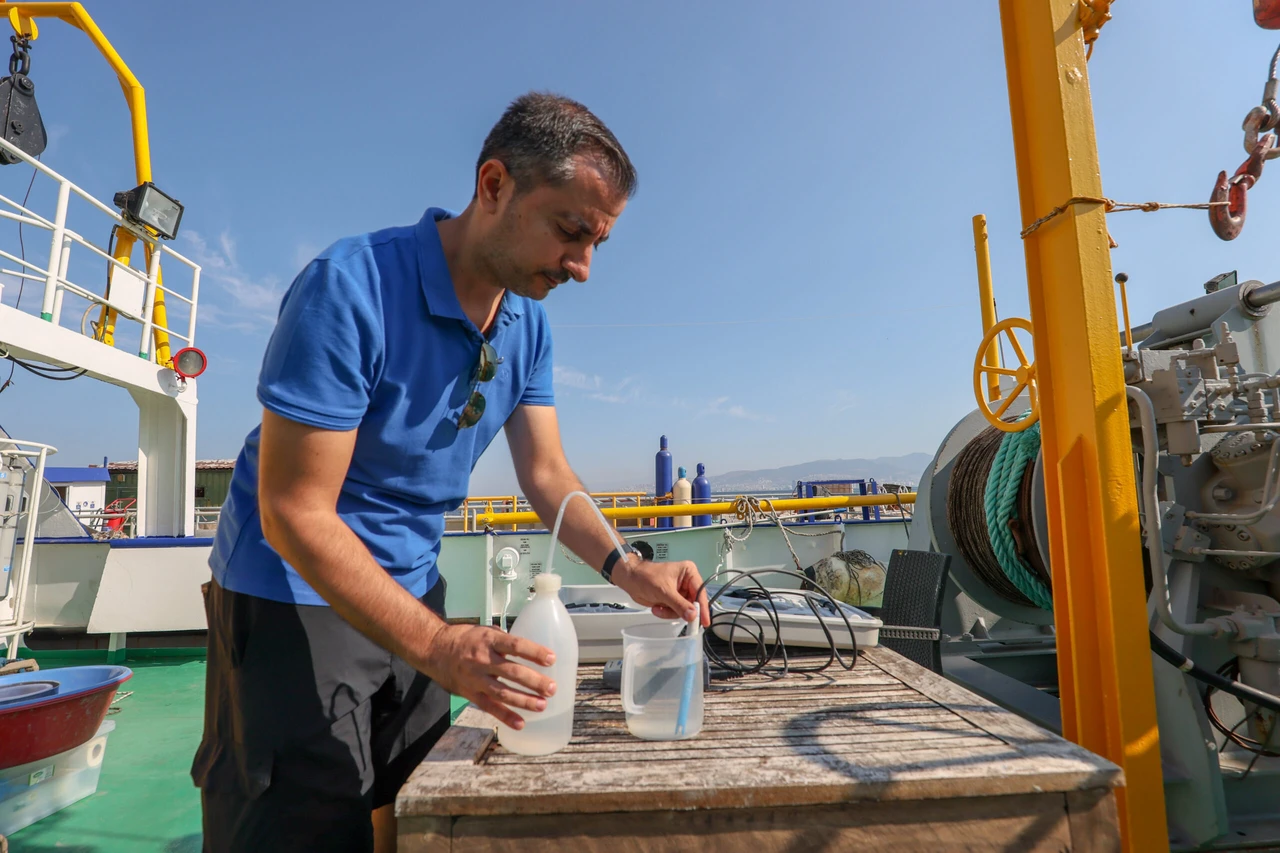 Scientists from Dokuz Eylul University, Institute of Marine Sciences and Technology on board the research vessel Koca Piri Reis, Izmir, Türkiye, August 30, 2024 (AA Photo)
Scientists from Dokuz Eylul University, Institute of Marine Sciences and Technology on board the research vessel Koca Piri Reis, Izmir, Türkiye, August 30, 2024 (AA Photo)
The coastal waters of Izmir Bay, once a vibrant marine ecosystem, are now under threat as a wave of fish deaths and unpleasant odors plague the area.
Responding to these alarming events, a team of 12 scientists from Dokuz Eylul University’s Institute of Marine Sciences and Technology has embarked on a mission aboard the research vessel Koca Piri Reis to uncover the root causes of the crisis.
The trouble began on Aug. 20, when dead fish washed ashore in Bayrakli, accompanied by an overpowering stench. In response, local authorities and environmental experts have intensified their efforts to pinpoint the source of the pollution and prevent further damage.
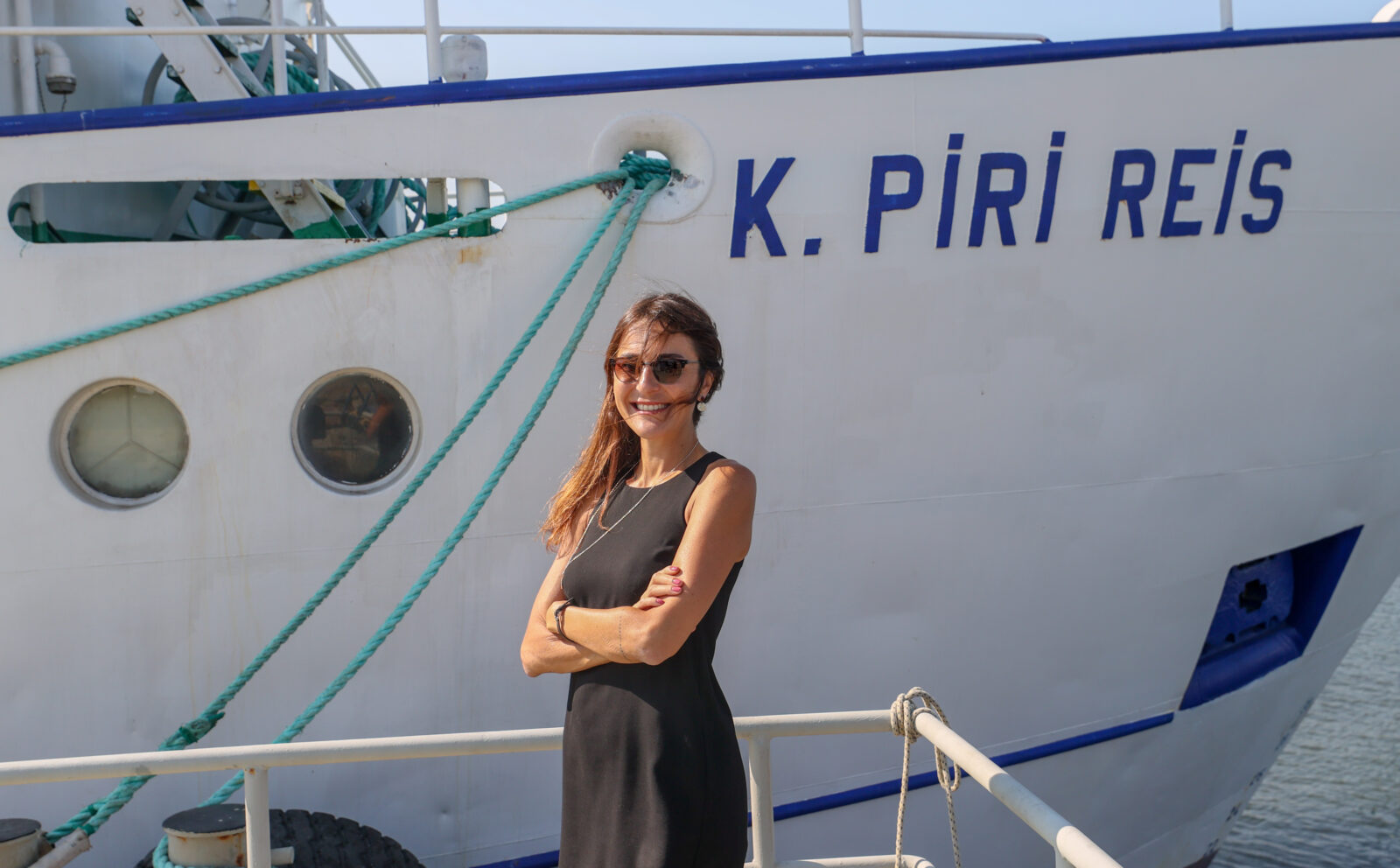
Leading the investigation, professor Nil Kula, Director of the Institute, emphasized the importance of scientific data in addressing the situation.
“We’ve been closely monitoring Izmir Bay for years, and while various factors have been suggested as potential causes, we believe that thorough scientific analysis is the key to understanding and solving this issue,” Kula stated.
The team has already collected water and sediment samples from 11 locations within the bay, which are now undergoing rigorous laboratory testing.
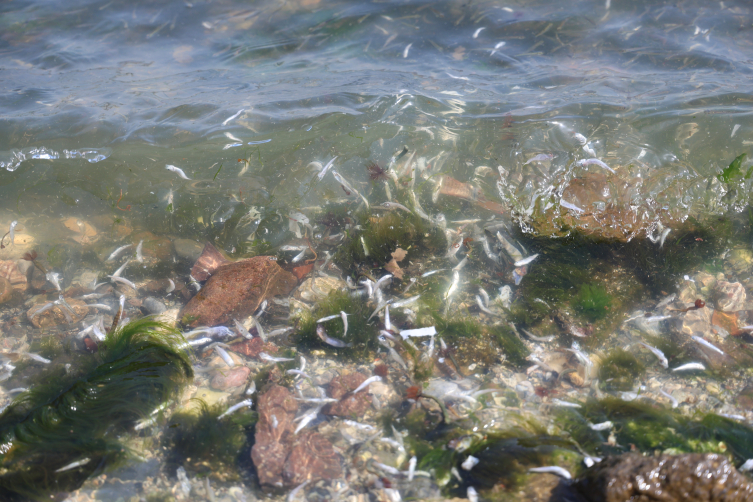
Fighting misinformation
Besides combating environmental pollution, the team is also working to dispel misinformation surrounding the incident. “Many theories are circulating, but not all of them are based on solid evidence. Our goal is to provide accurate, science-based information that can guide effective action,” Kula explained.
The initial results of the analysis are expected to be shared with relevant public institutions in the coming weeks.
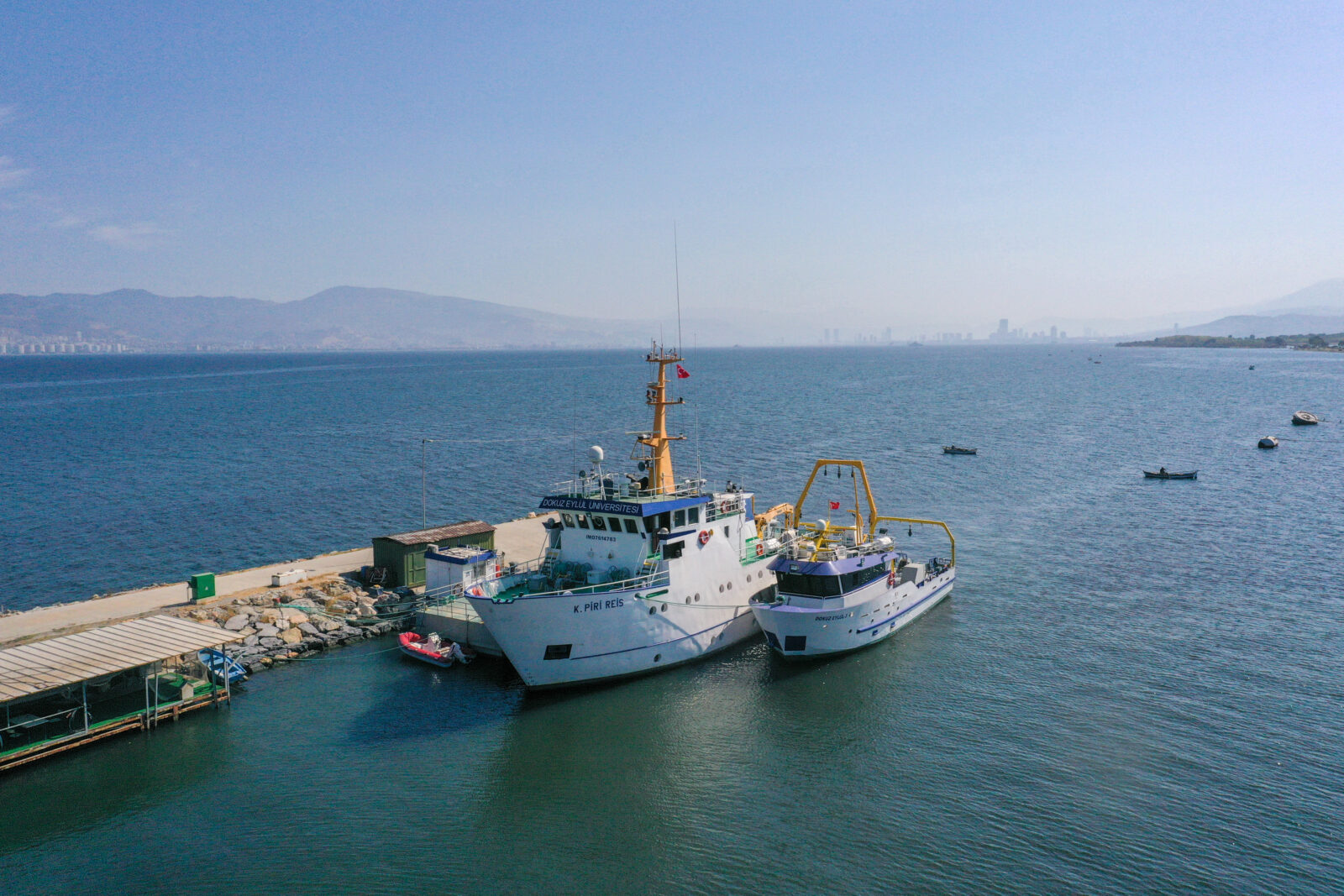
Oxygen levels at critical lows in Izmir Bay
Hakan Alyuruk, a member of the research team, highlighted the troubling oxygen levels in the bay.
“In previous years, we observed oxygen levels below 5 milligrams per liter in some areas, but now, we’ve recorded levels below 4 milligrams across all stations,” he noted.
This sharp decline in oxygen levels, which were significantly higher between 2005 and 2015, is contributing to the worsening environmental conditions.
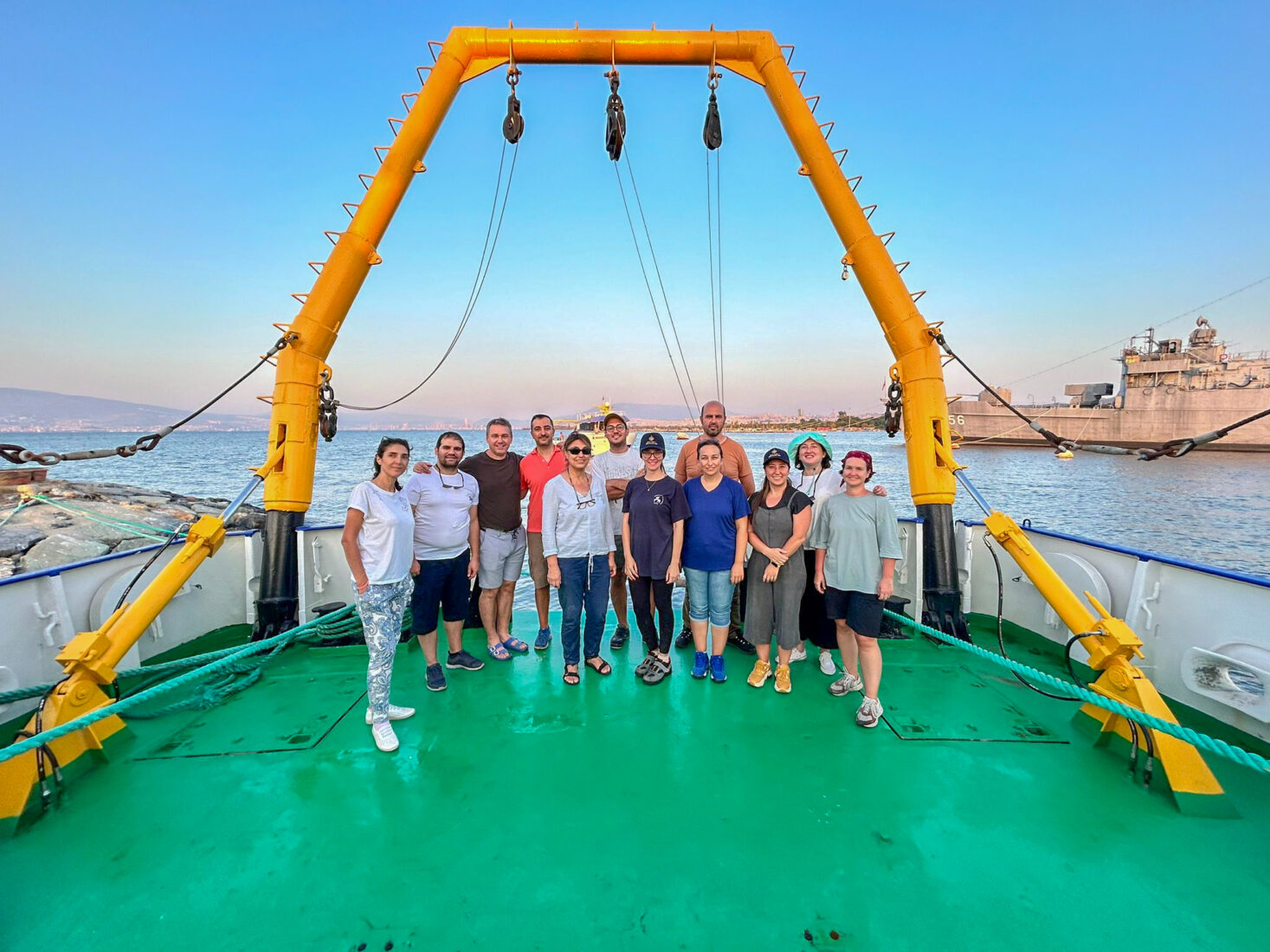
The role of algal blooms, circulation
Janset Kayaalp, another researcher on the project, pointed to algal blooms as a key factor in the bay’s current state. “The color changes in the water are a result of algal blooms, and the lack of circulation during the summer months has exacerbated the situation,” Kayaalp explained. While a rise in circulation could help mitigate the problem, the team is conducting further chemical and biological analyses to identify other potential triggers.
The research team, including renowned experts such as professor Sengul Besiktepe, Assoc. professor Banu Bitlis Yigit and Tarik Ilhan, are committed to finding solutions to restore the health of Izmir Bay.
As the investigation continues, the eyes of the nation are on the scientists, hoping for answers that could save this vital marine ecosystem.



